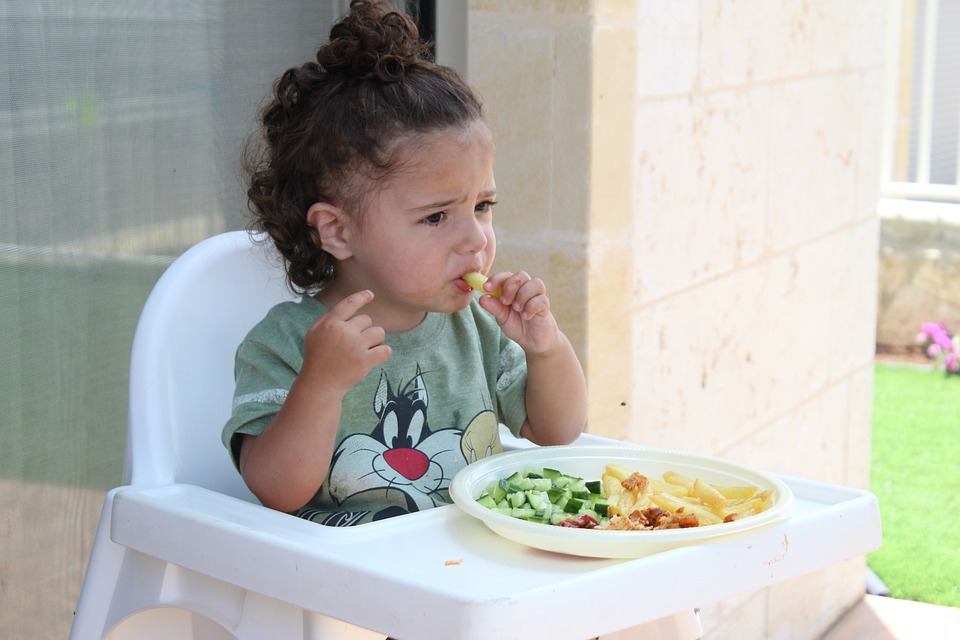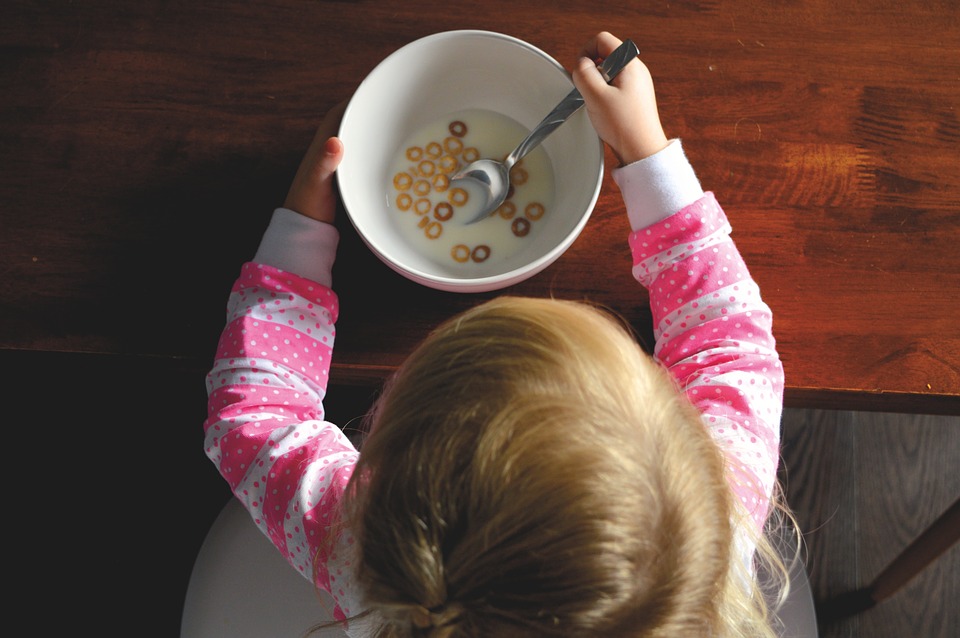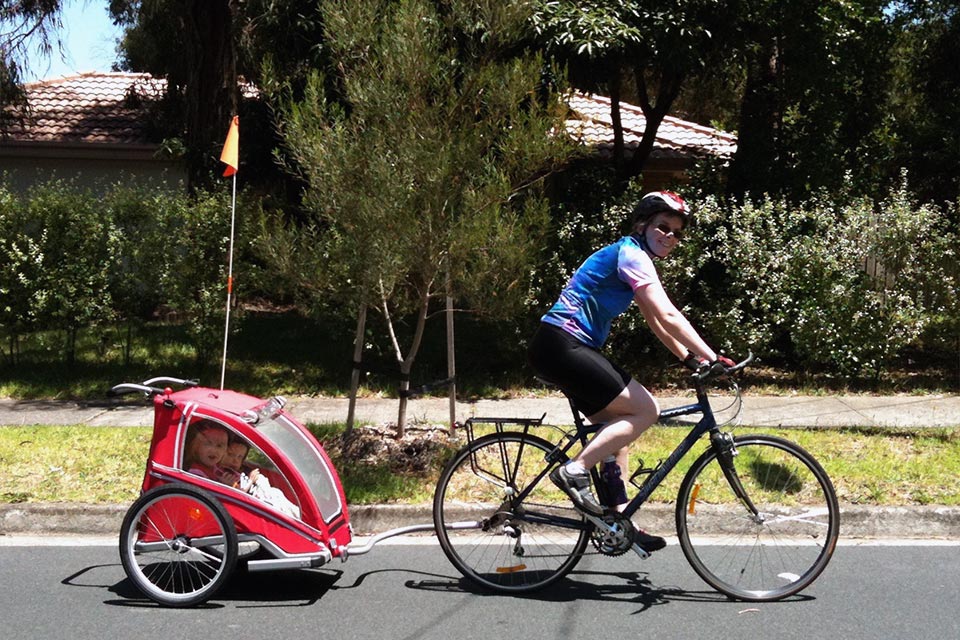You Are Not The Only Person Nervous About Baby-Led Weaning
If you are anything like me… baby-led weaning might be a little scary. But, there is no need to be nervous about baby-led weaning. It’s a method of feeding babies that has been used by many cultures around the world for a very long time. Here’s a starter on what you need to know to help alleviate those jitters.

Baby-led Weaning Meaning
So what is the meaning of baby-led weaning? It’s where you take a hands-off approach and let your baby feed themselves with appropriately sized finger foods right from the start. In other words… the baby skips the puree food stage completely. This isn’t some magical new fad. I’m sure that most parents out there already do give babies finger foods at some point in their first year of life. And many cultures around the world use this baby feeding method for ages except without the catchy name. But, the term “Baby-led Weaning (or BLW for short) was popularized about ten years ago in the U.K. with the book Baby-Led Weaning by Gill Rapley and Tracey Murkett (Amazon Link). And, it has since become popular in the United States in recent years.
When To Start?
When you can start baby-led weaning will be dependant on the individual child. But, according to healthychildren.org… typically, you would want your child to be able to do each of the following:
- Hold their head up with good control – Your baby should be able to sit up straight in the place they will be eating with good control of their head. That way you don’t have to worry about an injury while they eat.
- Will open his mouth when presented with food – Your baby should be receptive to eating when presented with food. This will happen naturally as your baby watches you eat food.
- They can move food from a spoon to their mouth with good control – Remember that up until now your baby has only been feeding on breast milk or formula. This means that they may not be used tho the textures that other food present. Your child should be able to take the food presented and eat it without it dribbling on to their chin.
- Are they big enough? Babies generally reach 13 pounds or more by 4 months. This is the time they may be ready for solid food.
With all this in mind… the American Academy of Pediatrics (AAP) now recommends the best time to start solid foods is around 6 months. It’s around this time that babies can sit up with good control and grab and hold onto objects. So, 6 months is a perfect time to start baby-led weaning.

Baby-led Weaning Benefits
Now that you have a little background on baby-led weaning… let’s talk about why it seems like it’s all the craze right now. According to the book’s authors Gill Rapley and Tracey Murkett… baby-led weaning offers many benefits that the traditional baby feeding methods can’t. Some of those include:
- It’s Enjoyable – Your baby will look forward to mealtimes. It’s a time where they can learn about different foods and the different things they can do with them. Even if that means they can throw them on the floor.
- It’s Natural – It’s human nature to experiment and explore. And, baby-led weaning allows your child to explore food at their own pace.
- Learning About Food – Babies are allowed to learn about food. They can hold it, smell it and even taste it. They can even rub it all over their faces if they want. This allows your child to learn about what they like and dislike about food.
- Learning About The World – Your baby will learn more than how to smear their food on their faces. They will also learn about the world around them. They can learn how to hold things without smushing them, dropping them or letting it slip out of their hands.
- Reaching Potential – When your baby receives an education lesson with every mealtime… your baby’s hand-eye coordination, dexterity and muscle growth grows with every mealtime as well. Helping your child reach their potential even faster.
- Gaining Confidence – Allowing your child to do things for themselves not only teaches them or helps them reach their potential. It also gives them the confidence to do things for themselves.
- Trusting Food – Since your child can eat what they want and leave what they don’t want… they learn to trust food. So they tend to be more willing to try new foods since they know they can whether or not to eat them.
- Being Part Of Family Mealtimes – Your child will be joining the family during mealtimes. What can be better than that?
- Appetite Control – Since your child has complete control over what they eat… they also have control over when to stop eating. They can move at their own pace and decide for themselves when they have had enough.
- Long Term Health – Baby-led weaning is kind of a misnomer since the main source of your baby’s nutrition would be breast milk (or formula) for the first year of their life. And breastfeeding provides the perfect balance of nutrients and protects the child and mother against many serious illnesses.
- No Need For Games or Tricks – You no longer have to trick your child into eating something just because you bought it for them. Your child will eat what they want without any coaxing.
- It’s Cheaper – You won’t have to buy a pre-made puree or even make it at home. Your child will eat what the family eats which will save you money.
Nervous About Baby-Led Weaning?
With all the perceived benefits of BLW… what’s there to be nervous about baby-led weaning? Well, there are a few cons to take into consideration.
- It’s Messy – Let’s be real… most kids would rather see how high they can throw the food then eat it. So expect to have a messy dinner until your babies learn how to feed themselves without making a mess.
- Choking Hazard – They’re many people who believe that baby-led weaning is a choking hazard. But a majority of the perceived danger can be avoided with preparing the food in appropriate sizes and textures for your child. Also, a recent study by the American Academy of Pediatrics has shown that Baby-led weaning did not lead to more choking than spoon-feeding.
I hope all of this information helps you to be a little less nervous about baby-led weaning. I know that it helped me to trust it more.
 By Grace – Child Development Associate Teacher in California
By Grace – Child Development Associate Teacher in California
My husband Mark and I have been blessed with two beautiful, smart, positive (I can go on and on) girls… Kenzie & Kayla. And, we have learned many tips and tricks while raising them. Tips and tricks that we felt would be useful to other new parents out there. So, we started WAYISAVE as a website built by parents for parents to share the best baby deals, coupons, tips, tricks and the occasional piece of advice.





